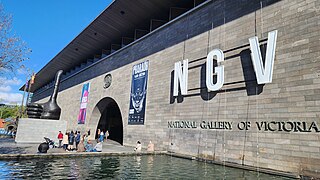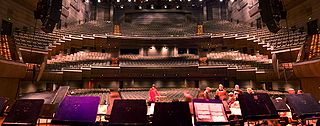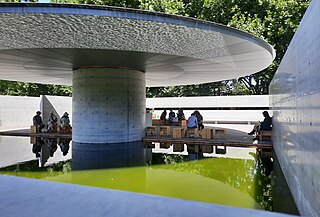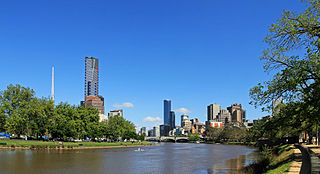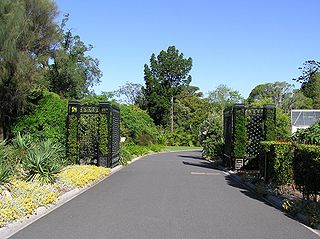Self-guided Sightseeing Tour #3 in Melbourne, Australia
Legend
Guided Free Walking Tours
Book free guided walking tours in Melbourne.
Guided Sightseeing Tours
Book guided sightseeing tours and activities in Melbourne.
Tour Facts
3.4 km
109 m
Experience Melbourne in Australia in a whole new way with our free self-guided sightseeing tour. This site not only offers you practical information and insider tips, but also a rich variety of activities and sights you shouldn't miss. Whether you love art and culture, want to explore historical sites or simply want to experience the vibrant atmosphere of a lively city - you'll find everything you need for your personal adventure here.
Activities in MelbourneIndividual Sights in MelbourneSight 1: National Gallery of Victoria
Get Ticket*The National Gallery of Victoria, popularly known as the NGV, is an art museum in Melbourne, Victoria, Australia. Founded in 1861, it is Australia's oldest and most visited art museum.
Sight 2: Hamer Hall
Hamer Hall, formerly the Melbourne Concert Hall, is an Australian concert hall. The 2,466-seat hall, the largest indoor venue at the Arts Centre Melbourne, is mostly used for orchestral and contemporary music performances. It was designed by Roy Grounds as part of the cultural centre which comprised the National Gallery of Victoria and the Arts Centre Melbourne. It was opened as the Melbourne Concert Hall in 1982 and was renamed Hamer Hall in honour of Sir Rupert Hamer shortly after his death in 2004.
Sight 3: MPavillion
MPavilion is a temporary pavilion in Queen Victoria Gardens, Melbourne, erected annually since 2014. The event is sponsored by philanthropist Naomi Milgrom. Initially the project was planned for four years, but later it was extended by another two, until 2019, and then another three years to 2023. No pavilion was constructed in 2020 due to the COVID-19 pandemic. The pavilions are used for various art events, after which each pavilion is gifted to the city or institution and moved to a permanent location.
Sight 4: Queen Victoria Gardens
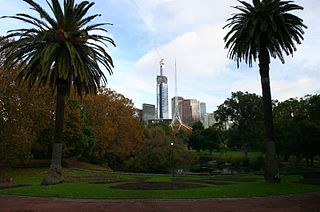
The Queen Victoria Gardens are Melbourne's memorial to Queen Victoria. Located on 4.8 hectares opposite the Victorian Arts Centre and National Gallery of Victoria, bounded by St Kilda Road, Alexandra Avenue and Linlithgow Avenue.
Sight 5: Alexandra Gardens
The Alexandra Gardens are located on the south bank of the Yarra River, opposite Federation Square and the Melbourne Central Business District, in Victoria, Australia. The Gardens are bounded by the Yarra River to the north, Princes and Swan street bridges, with Queen Victoria Gardens and Kings Domain across Alexandra Avenue to the south. The gardens are part of the Domain parklands which stretch to the Royal Botanic Gardens and were first laid out in 1901, under the direction of Carlo Catani, Chief Engineer of the Public Works Department. The Alexandra Gardens were named in honour of Alexandra of Denmark, in the year her reign as Queen Consort of the United Kingdom and the British Dominions and Empress consort of India began. The Alexandra Gardens are listed on the Victorian Heritage Register due to their historical and archaeological significance.
Sight 6: Kings Domain
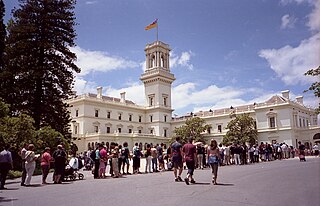
Kings Domain is an area of parklands in Melbourne, Victoria, Australia. It surrounds Government House Reserve, the home of the governors of Victoria, the Sidney Myer Music Bowl, and the Shrine Reserve incorporating the Shrine of Remembrance.
Sight 7: Government House
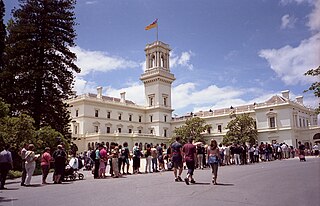
Government House is the official residence of the Governor of Victoria, currently Margaret Gardner. It is located in Kings Domain, Melbourne, next to the Royal Botanic Gardens.
Sight 8: Royal Botanic Gardens
Royal Botanic Gardens Victoria (RBGV) are botanic gardens across two sites–Melbourne and Cranbourne.
Share
Disclaimer Please be aware of your surroundings and do not enter private property. We are not liable for any damages that occur during the tours.
GPX-Download For navigation apps and GPS devices you can download the tour as a GPX file.
